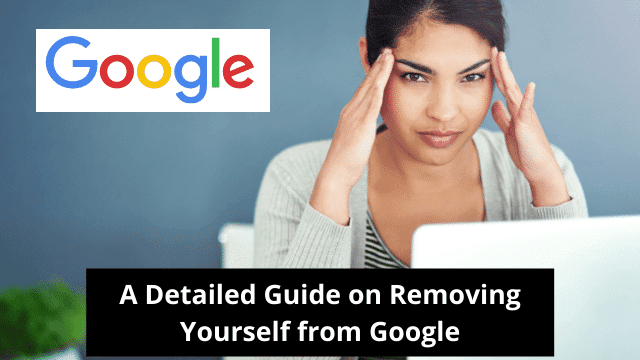There’s an old adage that says, “work smarter, not harder.” You’ve probably heard that since you were young, and it means just what it says; if you work smarter, you can get a lot more accomplished than if you worked hard on something. In the tech and business world, nobody has made better use of that adage than Google.
They have used that strategy to grow their company to an astounding $1.2 trillion. Yes, that’s “trillion dollars,” and it’s only one of three tech companies in the world to reach that amazing amount of net worth. Not bad for a company that’s only 23 years old.
So, how does Google work smarter? They really don’t create anything; instead, they let others collect all the personal information that Google makes available to their advertisers – including your personal information. That’s how Google makes their money – by giving access to that private data to advertisers in order to provide highly targeted ads to consumers.
Google has zillions of cyberbots crawling the internet, looking for any and all information about you that they can finв . The fact is, Google has way too much of your personal data that the world can see, and it’s time for you to take back control of it by removing yourself from Google. The key question people often ask is, “how to remove my personal information from Google?”
What Information Does Google Have Available?
Every time you go online, visit a website, send or read an email, text a friend or make a purchase, Google collects and stores that data. Google also gathers a lot of your personal information from data brokers, also known as people-search sites.
That includes public records, mortgage information, any criminal background information about you from parking tickets to felonies, and everything in between. It’s all there for anyone to use if they’re willing to pay for it, and the sad fact is you don’t even know it’s being done.
So, why is this a problem? It gives cybercriminals the ammunition they need to commit fraud or identity theft, because the more personal information they gather and piece together about you the more likely they’ll end up accessing your Social Security number.
Once that happens, it opens the door to all types of financial and identity fraud. Another problem is that the information Google gathers from those sites could be false or inaccurate, and that could end up doing damage to your reputation.
Just imagine applying for a job and the employer doing a background check on you – only to find that you have a criminal history listed under your name – because of false information or because a cybercrook used your name as part of synthetic identity theft. It could be devastating. Candidates are already struggling with the subject of how long does a background check take for a job, and adding cyber fraud to the mix might make for the most stressful job application of all time.
Start Removing Yourself from Google
Ok, what’s the first step you should take to remove yourself from Google? Because a lot of Google’s information about you comes from people search sites, your first step is to delete your profiles from all of those. Doing this can be an arduous task, because there are more than 100 people-search sites like Intelius, Spokeo and US Search.
In addition, each site has their own rules and procedures for opting out and removing your information, so it could take a lot of time and effort to accomplish. However, considering that Google will find and access this information, it’s worth doing whatever it takes to remove it.
Read Also: Clear SSL State Windows 10 – Everything You Need To Know
Here’s something else to consider: when opting out of people-search sites, use a disposable email service like Mailnator, Mail Poof or Guerilla Mail. Otherwise, your inbox will be filled with tons of spam, which is one more thing you’d have to deal with.
If you have a website, publish blogs or do podcasts, you’ll want to remove all of your personal information from the sites you have control over. If you have content on other websites, such as “about us” pages on a former employer, ask the owner of those websites to delete it.
Most will hopefully accommodate your request. Other pages to remove include any testimonials that were published without your consent, or sites that contain articles you may have written in the past.
One important area that is often overlooked is your social media – from profiles to posts. It’s important to scour all of your social media for any personal information like location, family member names, employment information and other data – anything that can give a cybercriminal a lead to your identity.
In addition, people-search sites scour social media pages looking for any type of personal information that they can access, and you want to prevent this as much as possible.
You also want to prevent Google from indexing that data, and after you remove as much as you can of your own personal information, make sure you tweak all of your social media privacy settings to prevent Google from linking to your profile.
What some people forget is that they can always ask Google to remove personal information that falls outside of their policies. This includes any type of information that can be used for identity theft, financial fraud or anything else that might put you in harm’s way.
Items in this category could include intimate images that were published or taken without your consent, fake pornography using your image, along with any kind of medical or financial information that could lead to fraudulent activity.
To ensure accuracy of what Google will remove, check out Google’s information page on instructions for filling out a removal request form. Just remember that Google isn’t required to remove your name or other publicly available information.
By reviewing the information in this article and following the recommended action, you’ll remove yourself from Google and protect your personal information.

Hello, My name is Shari & I am a writer for the ‘Outlook AppIns’ blog. I’m a CSIT graduate & I’ve been working in the IT industry for 3 years.
